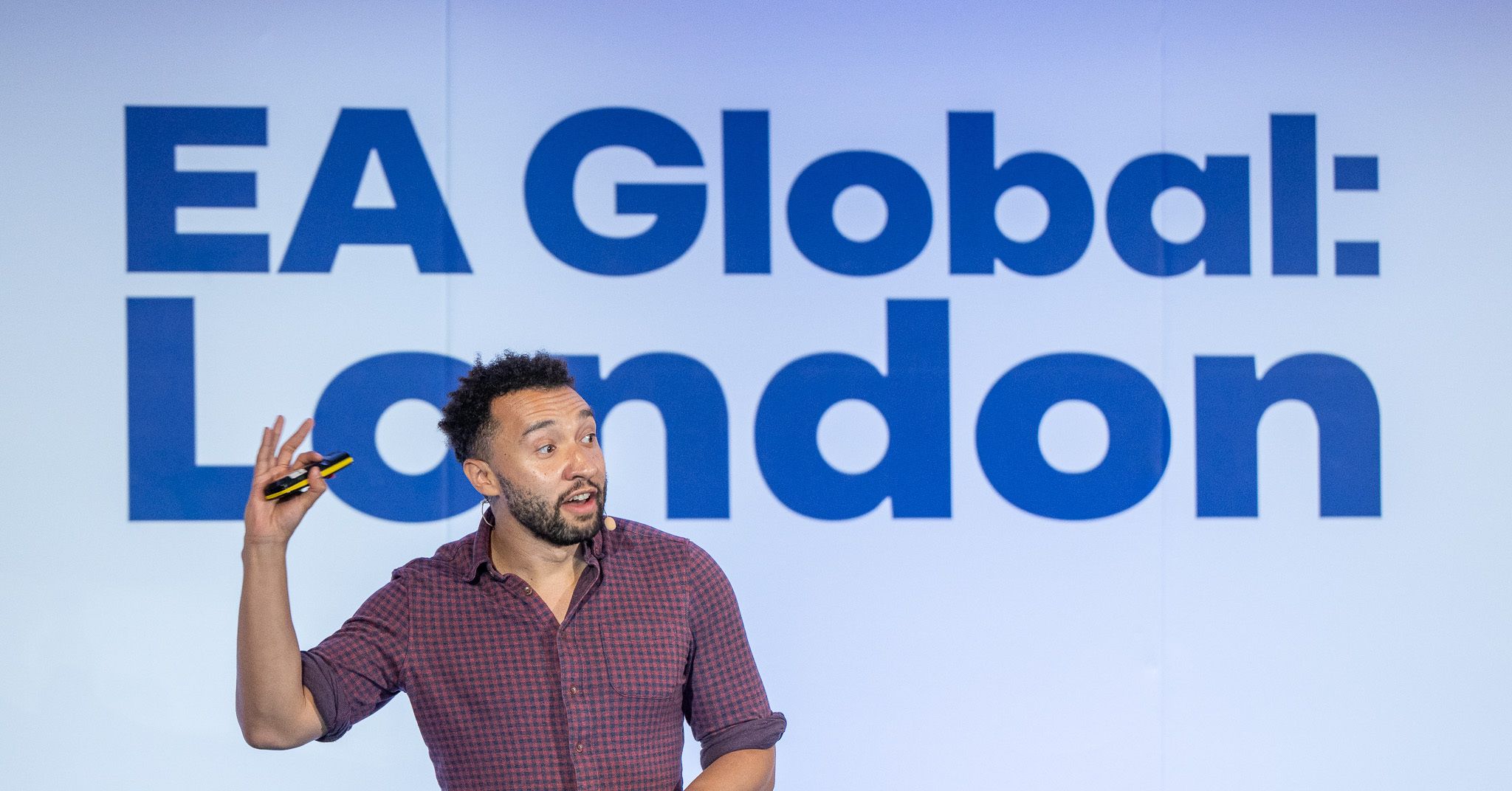Thanks to Miranda Zhang, Teddy Tawil, and Matt Burtell for feedback on this post.
EA shares a key similarity with large family gatherings: you constantly feel the need to justify your life choices. You might have a really good justification, but you might also feel like you need to make something up.
I think it’s good for people to give explanations of their choices. After all, EA is about making the choices which will maximize your impact, and many of these choices are career-related. Your career is a major part of your life, and if you say you’re choosing a career path on the basis of EA principles, people in EA will sometimes ask you to give an explanation for why you're choosing that particular path. This isn't usually because they are trying to expose you, but because they genuinely want to hear your perspective and help you have the most impact that you can.
In fact, some people fill out applications just to speak with someone who can help you make life choices that are more justifiable (this is called 80,000 Hours advising).
A justification is supposed to indicate how you’ve thought about what you’re doing and why you’re doing it instead of any other options you had. In EA, this usually means why you think it’s likely to have the highest impact. Thinking carefully about your life choices is one way to be able to produce a legible justification, and thinking carefully is certainly an extremely important aspect of having impact. One way to practice thinking is to practice explaining.
But I’ve noticed that sometimes, people in EA try to justify seemingly everything.
Why are you ordering food instead of cooking? Because it saves me time so I can spend more time working. Why do you spend so much time gardening? Because it keeps me sane so I can do more one-on-ones with new group members. Why are you going to that party tonight? Because it will make me happier, which will help me produce more long-run undiscounted utility.
I think it can be very worthwhile to think about the major parts of your life on a semi-regular basis. Are they valuable to you? Do they help you achieve your goals (Julia Wise provides an excellent justification for having more than one)? Are they worth changing? If you think hard about decisions as large as your career, you will do much more good in expectation. The unexamined life is not worth many impact points.
However, even if you are an ardent utilitarian, it doesn’t make sense to make every single decision on the basis of a calculated utility for that decision. Many people have written great things about this, so I will not try to justify it fully here. But the basic gist is that act utilitarianism can be self-defeating: it can be time-consuming and emotionally difficult to decide every decision on the basis of the greater good, and that’s not even considering the risk of the unilateralist’s curse. Because of that, being a strict act utilitarian can reduce the utility of your acts.
But possible self-defeating dynamics aren’t the only issue. Another is that pressure to justify everything can cause people to come up with justifications after the fact. What do you do if you only heard about EA six months ago, and already made some decisions beforehand? What do you do if you just didn’t think very hard about working at a random tech company rather than something “more EA”? What if you just went to the party because you wanted to?
Justifying, in these cases, is also a way to get practice... in motivated reasoning. Why did you go to two parties last weekend? Maybe you just need two weekly parties to be happy enough to work. Why were you spending so much time trying to get an A in differential equations that you forgot to apply to that internship? Well, a top 5 PhD program requires a high GPA. These justifications could be true, but are they really why you did the thing? If they aren’t, making justifications can get you into the habit of making up fake reasons for everything you do, reducing your ability to think about which reasons aren’t fake. Your poor justifications might also erode people’s ability to believe you when you really have thought about something really hard.
My proposal: don’t feel the need to justify everything through the lens of impact. If you don’t have a good justification, just say so. Of course, this goes both ways. If somebody else doesn’t want to provide a justification for something, respect that. It’s better for people to be honest than to make up an answer after the fact, and for minor things, it might even be better to not think too hard about it at all.
So the next time you feel the need to justify something you did, and you don’t have a good explanation, consider giving the same answer a moody teenager would give at the dinner table: "I did it because I felt like it."



Yes, people will always have motivated reasoning, for essentially every explanation of their actions they give. That being said, I expect it to be weaker for the small set of things people actually think about deeply, rather than things they're asked to explain after the fact that they didn't think about at all. Though I could be wrong about this expectation.